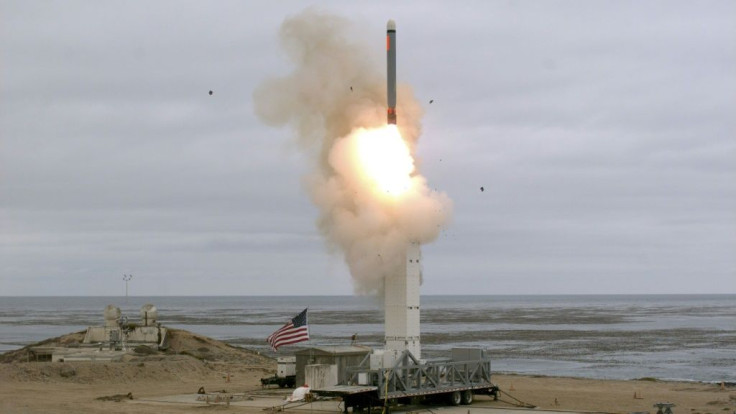A New Arms Race? Russia, China Condemn US Missile Tests

The Chinese and Russian governments have accused the U.S. of initiating a new Cold-War style arms race after the Pentagon conducted a missile test Monday.
The test occurred after the recent collapse of the landmark Intermediate-Range Nuclear Forces Treaty (INF) earlier this month, with the U.S. trying out new missiles that wouldn't have complied with the deal.
Kremlin Spokesman Dmitry Peskov said the U.S. launching the missile just three weeks after the agreement fell apart on Aug. 2 showed that it was never serious about the pact.
Russian Foreign Minister Sergei Ryabkov has added that the Russian Federation "would not be dragged into a costly arms race."
Chinese Foreign Ministry Spokesman Geng Shuang said that he hopes that the U.S. will "abandon their outdated concepts of a cold war mentality and zero-sum games, and exercise restraint in developing weapons."
The INF agreement was signed in 1987 by President Ronald Reagan and then-Soviet Union leader Mikhail Gorbachev and banned the two countries from using ground missiles with a range of 310 to 3,400 miles.
Secretary of State Mike Pompeo has previously said Russia "is purely responsible for the treaty's demise" and that the country has never complied with the deal.
The INF agreement might not be the only arms deal between the U.S. and Russia that might be in trouble. The New START agreement, which was signed in 2010 between the U.S. and Russia, might also be in jeopardy.
The New START deal entered into force in 2011 and limits each country to 700 deployed intercontinental ballistic missiles (ICBM) and 1,550 strategically deployed nuclear warheads.
Democrats and Republicans in the Senate have called on the Trump administration to extend the treaty, which is set to expire in 2021. Trump and hawkish members of his cabinet such as John Bolton have suggested that the treaty was flawed.
President Trump, as part of his "America First" agenda, has made a habit of withdrawing from international agreements. He has withdrawn the U.S. from the 2015 Iran nuclear deal, the 2016 Paris climate agreement and also the proposed Trans-Pacific Partnership (TPP) trade deal.
© Copyright IBTimes 2025. All rights reserved.





















